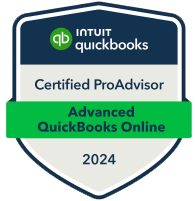Setting Up Your Company
When is the Right Time to Establish a Limited Company?
Determining the ideal moment to form a limited company can be challenging, but there are several factors to consider that will help you assess if your business is ready for this change.
A good starting point is to evaluate your business goals. Companies looking to expand or those seeking external investment might find that transitioning to a limited company is beneficial.
In contrast, sole traders focused on small-scale operations or personal service businesses may find that the extra legal responsibilities of forming a limited company outweigh the advantages.
Your business's financial health and revenue generation capabilities also play a key role. Businesses that generate consistent and sustainable income are better positioned to benefit from a limited company setup, as it suggests growth potential.
The cost of incorporation is another important factor. Setting up a limited company involves various fees, including incorporation, ongoing administrative costs, and possibly legal and accounting fees.
Ultimately, the best time to form a limited company is when your business is financially stable, poised for growth, and you’re prepared to manage the associated responsibilities.
A careful evaluation of your business goals and circumstances will guide you in making the right decision.
Is it Possible to Set Up a Limited Company by Yourself?
Absolutely. Entrepreneurs can establish a limited company independently. In such cases, the individual setting up the company is usually the sole shareholder and director.
Steps to Set Up a Limited Company
- Select the Type of Company
Decide whether to form a private or public limited company. This decision will influence the company’s ownership structure, regulatory requirements, and ability to raise capital. - Choose a Company Name
The name you choose will reflect your business identity. Ensure it is unique and available. Research online to avoid potential conflicts, and consider cultural or regional sensitivities if you plan to expand. - Appoint a Director
Every limited company needs at least one director. Make sure the director meets legal requirements and registers their appointment with Companies House. - Determine Shareholders
Shareholders play an important role in the direction of the business. Decide how many shareholders your company will have and consider whether external investors will be involved. - Understand Required Records
A limited company must maintain accurate records, including financial statements, shareholder details, statutory registers, and tax records. Stay informed about your ongoing record-keeping obligations.
Choosing Between Private and Public Limited Companies
A Private Limited Company typically has a small group of shareholders, which may include the founders, investors, or even friends and family. It doesn’t need to publicly disclose its financial records and is subject to fewer regulatory controls compared to public companies. Private companies raise capital by issuing shares to a limited group of investors.
A Public Limited Company (PLC) has shares that can be freely traded and owned by the public. These companies must comply with stricter regulatory rules and disclose financial and governance information publicly. They have easier access to capital and are well-positioned for expansion.
Selecting a Company Name
The name you choose for your company will represent your brand. Make sure it’s distinctive and legally available. Also, think about the long-term scalability of the name, its relevance to your business, and how it may be perceived in different regions if you expand internationally.
Appointing a Director
A director is necessary for every limited company. Ensure that the appointed director meets the legal criteria and that this appointment is properly registered with Companies House.
Who Should Be Your Shareholders?
Your company’s shareholders will influence its operations. Think about how many shareholders are appropriate for your business size, ownership stakes, and whether you want to involve external investors.
Maintaining Company Records
As a limited company, you must keep up with various records such as annual accounts, shareholder information, and tax documents. Proper record-keeping is crucial for regulatory compliance and smooth operation.
Costs Involved in Setting Up a Limited Company
Setting up a limited company can incur several costs, including:
- Incorporation Fee: The basic fee paid to Companies House for registering your company.
- Companies House Fee: A nominal charge for processing your registration documents.
- Registered Office Address: You must provide an official business address, which could be your home address or a separate service for privacy.
- VAT Registration: If your business meets the VAT threshold, you will need to register. While registration is free, consider the cost of accounting and VAT compliance.
- Accounting Fees: Managing the financial and legal responsibilities of a limited company can be complex, and hiring an accountant is often a worthwhile investment. Alternatively, accounting software can help.
Timeline for Setting Up a Limited Company
Setting up a limited company is a relatively quick process. Online applications can be processed within a day, while paper applications may take a couple of weeks, depending on postal times and processing speed.
Transitioning from Sole Trader to Limited Company
The decision to switch from being a sole trader to forming a limited company depends on your business’s growth, revenue, and overall financial health. Many entrepreneurs begin as sole traders due to its simplicity, but when the business reaches a certain stage, a limited company structure offers more benefits. If you’re considering the transition, it’s important to plan ahead and ensure your business is financially ready.






